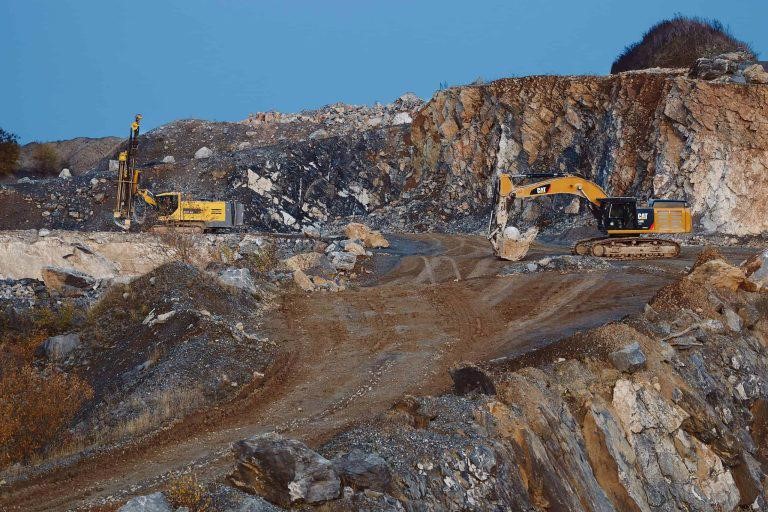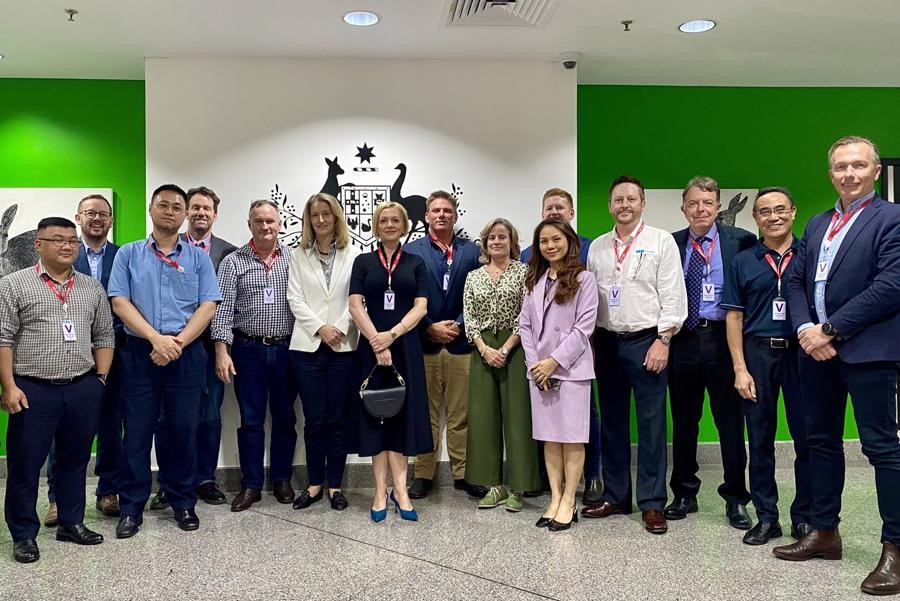The draft Law on Geology and Minerals is expected to be submitted to the National Assembly for approval during the 8th session of the 15th National Assembly, scheduled for late October. Notably, one of the critical elements of the draft law focuses on international integration and cooperation in geology and minerals, underscoring Viet Nam's emphasis on this area in the current phase.
Integration and international cooperation in the draft law
The draft Law outlines the responsibilities of international integration and cooperation on geology and minerals, emphasizing that the State encourages proactive international integration in scientific research, technological development, and primary geological surveys. This includes monitoring mineral activities and applying circular economy models in mining and mineral processing. Additionally, organizations and individuals are encouraged to meet international standards related to geological and mineral surveys, enhancing competitiveness in global trade.
 Viet Nam ranks second in the world regarding rare earth reserves
Viet Nam ranks second in the world regarding rare earth reserves
International cooperation in geological research, primary mineral surveys, and mineral resource management must align with the country's socio-economic development strategy and the geology and mining strategy, adhering to Vietnamese law, international treaties to which Viet Nam is a signatory, and foreign policies.
Beyond setting broad goals for international cooperation, the draft law also stresses the importance of respecting national sovereignty and territorial integrity. A fundamental principle is equal and mutually beneficial cooperation, which aims to foster a fair international community based on non-interference in each other's internal affairs and respect for Vietnamese laws and relevant international agreements.
Disputes over geology and minerals should be resolved peacefully, following international law and the legal frameworks of involved parties. Organizations and individuals are expected to voluntarily comply with international standards in geological and mineral surveys and conduct mineral activities to boost competitiveness in global markets.
Meanwhile, ministries and provincial People's Committees engaged in international cooperation on geological and mineral surveys and management are responsible for annually evaluating their cooperation activities.
Geology and Minerals Strategy
The importance of international cooperation is also highlighted in the Prime Minister's Decision No. 334/QĐ-TTg, approving the Geology, Mineral, and Mining Industry Strategy to 2030, with a vision toward 2045. The government requires the Ministry of Natural Resources and Environment (MONRE) to strengthen international partnerships in underground space research, deep mineral exploration, and building geological-mineral databases, as well as in brown coal mining technology in the Red River Delta.
Viet Nam consistently encourages international partners to engage in research and investment in the geological and mineral sectors, particularly in sustainable mining. For example, in April 2024, the Australian Embassy in Viet Nam confirmed Australia's cooperation in advancing Viet Nam's sustainable mining industry. A delegation of Australian Mining Equipment, Technology, and Services (METS) companies participated in the Mining Viet Nam 2024 exhibition with support from the Australian Trade and Investment Commission (Austrade) to promote this collaboration.
 Australian Mineral Equipment and Technology Services (METS) business delegation to Viet Nam
Australian Mineral Equipment and Technology Services (METS) business delegation to Viet Nam
Rebecca Ball, Australia's Trade and Investment Commissioner, stated, "Australia can further assist Viet Nam in achieving its goal of sustainable mining through workforce skill development, implementing ESG measures, and adopting Australia's METS solutions. This will help reduce carbon emissions, improve water management, and explore opportunities to recycle mining waste into valuable construction materials."
Additionally, in March 2024, during the ASEAN-Australia Special Summit, Viet Nam's Ministry of Industry and Trade signed a memorandum of understanding with Australia's Ministry of Industry, Science, and Resources, establishing a ministerial dialogue on energy and minerals.
Most recently, during the 13th session of the Viet Nam-China Economic and Trade Cooperation Committee in late September 2024, Viet Nam's Minister of Industry and Trade held talks with China's Minister of Industry and Technology, Jin Zhuanglong. One of the four key cooperation areas proposed by Viet Nam was minerals. Viet Nam suggested both countries enhance cooperation in scientific and technical research, technology transfer in exploration, mining, processing, and utilization of minerals to improve efficiency, reduce resource loss, increase labor productivity, and produce environmentally friendly, high-quality products compliant with Vietnamese laws and standards.